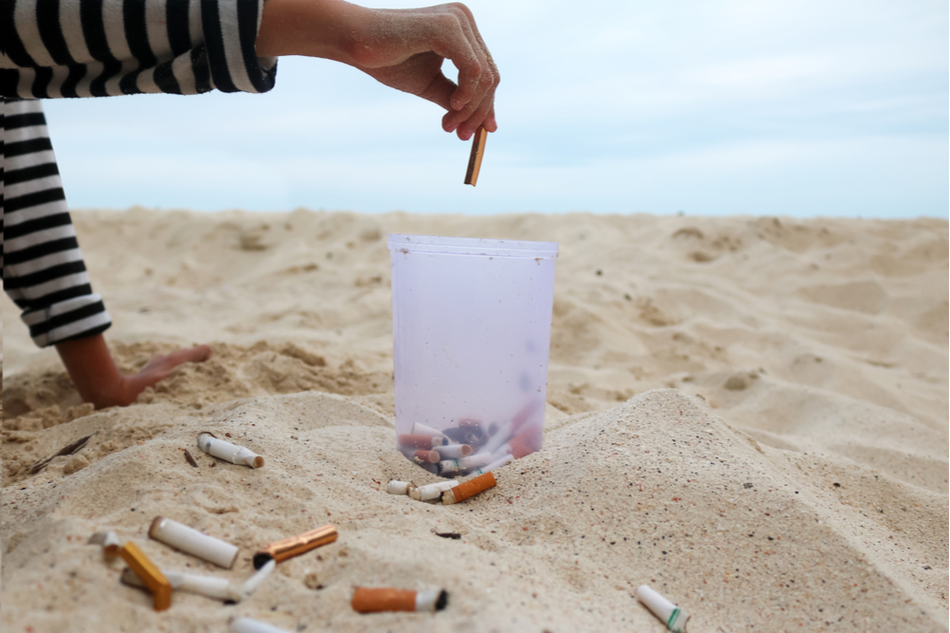The Catalan government has launched a clever plan to rid their streets and beaches of cigarette butts. As an added plus, the plan has provided a small source of income for the homeless.
According to the environmental organization Ocean Conservancy, cigarette butts are the most plentiful type of trash thrown into the sea, and the EU states that cigarette butts are the second-most common single-use plastic item littering the continent’s beaches.
“We want to put a stone to the present situation where around 70 percent of cigarette butts end up either on the ground or in the sea,” said the head of the Catalan waste agency Isaac Peraire to El Periódico.
The government plans to pay £4 to anyone who turns in a pack’s worth of cigarette butts at a recycling point. A 20-cent levy on every cigarette will cover the costs associated with this scheme. This would almost double the price of a pack of Marlboro Reds.
The details of the plan have not yet been finalized, but one proposal is for people to deposit their picked-up cigarette butts at the tobacconist or a kiosk where the cigarettes were purchased.
“The idea isn’t to generate income but to reduce the environmental impact of these products,” Peraire added. “It’s hoped that one day this measure will cease to be necessary because the problem will have disappeared.”
Other efforts to reduce marine pollution include a smoking ban on all of Barcelona’s city beaches starting in July. The Spanish government also plans on making it illegal to smoke on terraces of bars, restaurants, on beaches, and at open-air sports venues.
According to Ismael Aznar Cano, director-general for quality and assessment at Spain’s environment ministry, the proposal for the cigarette butt measures follows the passing of a law on waste that will take effect in 2023.
This law forbids the sale of plastic cotton buds, cutlery, plates, expanded polystyrene cups, and plastic straws. Cigarette butts, however, are not yet covered by such laws.
Considering that cigarette butts take up to 10 years to fully biodegrade and release toxins into the environment as they do so, taking action to eliminate this type of litter is incredibly important.











